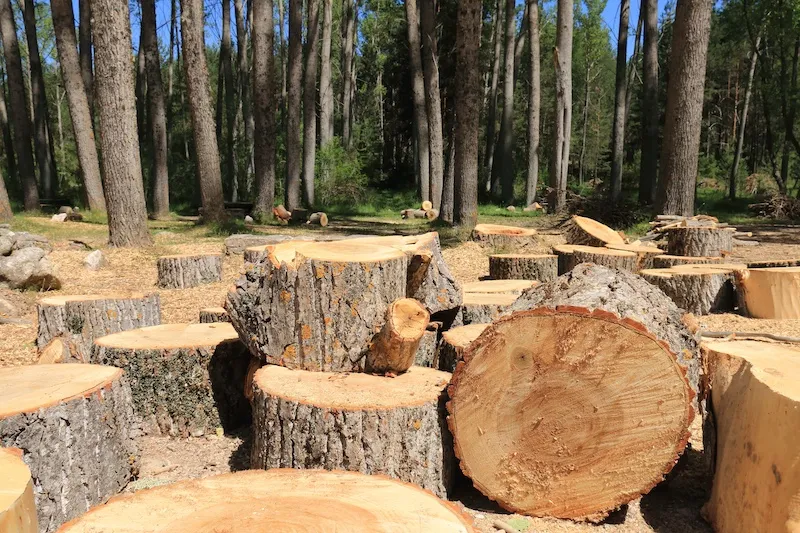
EUDR: A Strong European Response to Global Deforestation
In a global context of the fight against climate change, the European Union (EU) is taking a major step forward with the entry into force of Regulation (EU) 2023/1115 on deforestation-free products, known as the EUDR (Regulation on Deforestation-free Products). Adopted in 2023, this regulation imposes a profound paradigm shift for companies in how they produce, purchase, trace, and declare raw materials and products placed on the European market.
Breaking the Link Between European Consumption and Forest Destruction
The EUDR reflects a clear political ambition: to break the connection between European consumption and global deforestation. In concrete terms, this means that industrial companies, whether importers, manufacturers, or exporters, will now have to prove that their products have not contributed to deforestation or forest degradation, and that they were produced in compliance with local laws, including land use, social, and environmental regulations.
Supply Chains: What Obligations Does the EUDR Impose?
The regulation covers sensitive raw materials such as soy, cocoa, coffee, palm oil, wood, rubber, and cattle, along with a wide range of derived products. As of December 2024, each operator must have implemented a documented, verifiable due diligence system. This is not just about verification, it's a true investigative, analytical, and evidence-based process that all companies involved in these supply chains must undertake.
The Three Pillars of Due Diligence
The first pillar involves collecting precise and traceable information on the origin of raw materials: exact geolocation of production plots, harvest date, identity of producers, and documents proving the legality of the operation. Companies can no longer rely solely on their suppliers, they must provide supporting evidence that each batch of material complies with the law.
The second pillar is risk assessment. Once the information has been collected, companies must objectively analyze the likelihood that their products are linked to non-compliant activities. High-risk countries for corruption, lack of clear land titles, complex or opaque supply chains, all of these factors must be considered. If the risk cannot be eliminated, the product cannot be marketed.
Finally, in cases where the risk is non-negligible, operators must implement mitigation measures: on-site audits, additional document collection, or even switching suppliers if necessary.
EUDR Compliance Statement: A Key Requirement to Access the EU Market
The regulation also requires submission of a due diligence statement via an EU electronic system. This legally binding document certifies that all necessary checks have been carried out and that the product complies with the regulation. Without this statement, no product can legally enter or leave the European market.
National authorities will be responsible for enforcement and may impose heavy penalties in the event of non-compliance, up to 4% of a company’s annual turnover. But beyond regulatory risk, it's also about reputation and market access.
Preparing for the EUDR: A Strategic Challenge for Industry
Industrial players are not alone in this transition. Specialized firms like EcoMundo are already supporting many companies in implementing the regulation: product mapping, country risk analysis, supplier data collection, preparation of official declarations… The challenge is legal, technical, and strategic all at once.
The EUDR is not just another regulatory constraint. It marks the beginning of a new era in which companies are accountable for their impact on the planet and natural resources.
👉🏼 Contact us to discuss your situation!
EUDR: A Strong European Response to Global Deforestation
In a global context of the fight against climate change, the European Union (EU) is taking a major step forward with the entry into force of Regulation (EU) 2023/1115 on deforestation-free products, known as the EUDR (Regulation on Deforestation-free Products). Adopted in 2023, this regulation imposes a profound paradigm shift for companies in how they produce, purchase, trace, and declare raw materials and products placed on the European market.
Breaking the Link Between European Consumption and Forest Destruction
The EUDR reflects a clear political ambition: to break the connection between European consumption and global deforestation. In concrete terms, this means that industrial companies, whether importers, manufacturers, or exporters, will now have to prove that their products have not contributed to deforestation or forest degradation, and that they were produced in compliance with local laws, including land use, social, and environmental regulations.
Supply Chains: What Obligations Does the EUDR Impose?
The regulation covers sensitive raw materials such as soy, cocoa, coffee, palm oil, wood, rubber, and cattle, along with a wide range of derived products. As of December 2024, each operator must have implemented a documented, verifiable due diligence system. This is not just about verification, it's a true investigative, analytical, and evidence-based process that all companies involved in these supply chains must undertake.
The Three Pillars of Due Diligence
The first pillar involves collecting precise and traceable information on the origin of raw materials: exact geolocation of production plots, harvest date, identity of producers, and documents proving the legality of the operation. Companies can no longer rely solely on their suppliers, they must provide supporting evidence that each batch of material complies with the law.
The second pillar is risk assessment. Once the information has been collected, companies must objectively analyze the likelihood that their products are linked to non-compliant activities. High-risk countries for corruption, lack of clear land titles, complex or opaque supply chains, all of these factors must be considered. If the risk cannot be eliminated, the product cannot be marketed.
Finally, in cases where the risk is non-negligible, operators must implement mitigation measures: on-site audits, additional document collection, or even switching suppliers if necessary.
EUDR Compliance Statement: A Key Requirement to Access the EU Market
The regulation also requires submission of a due diligence statement via an EU electronic system. This legally binding document certifies that all necessary checks have been carried out and that the product complies with the regulation. Without this statement, no product can legally enter or leave the European market.
National authorities will be responsible for enforcement and may impose heavy penalties in the event of non-compliance, up to 4% of a company’s annual turnover. But beyond regulatory risk, it's also about reputation and market access.
Preparing for the EUDR: A Strategic Challenge for Industry
Industrial players are not alone in this transition. Specialized firms like EcoMundo are already supporting many companies in implementing the regulation: product mapping, country risk analysis, supplier data collection, preparation of official declarations… The challenge is legal, technical, and strategic all at once.
The EUDR is not just another regulatory constraint. It marks the beginning of a new era in which companies are accountable for their impact on the planet and natural resources.
👉🏼 Contact us to discuss your situation!







